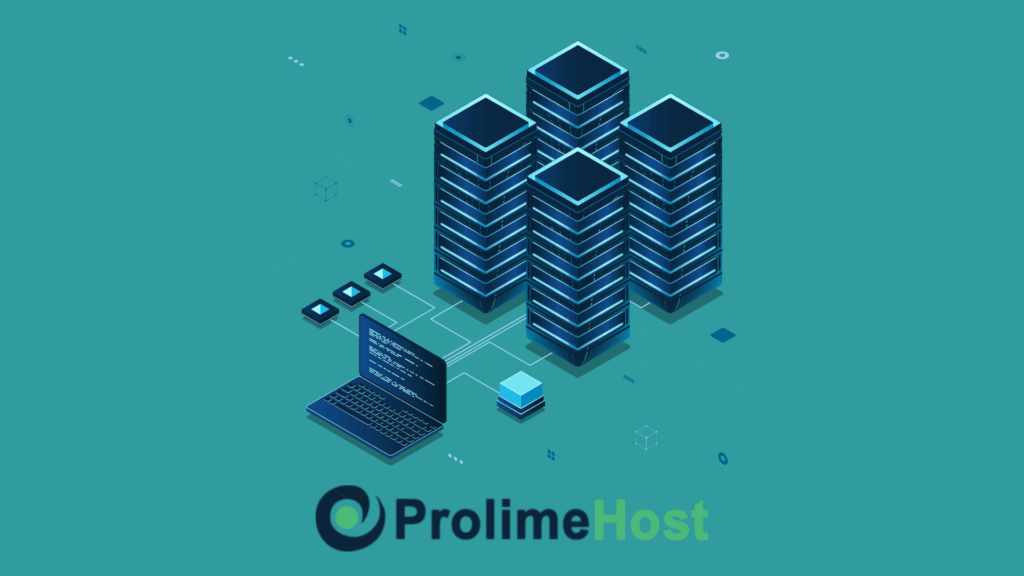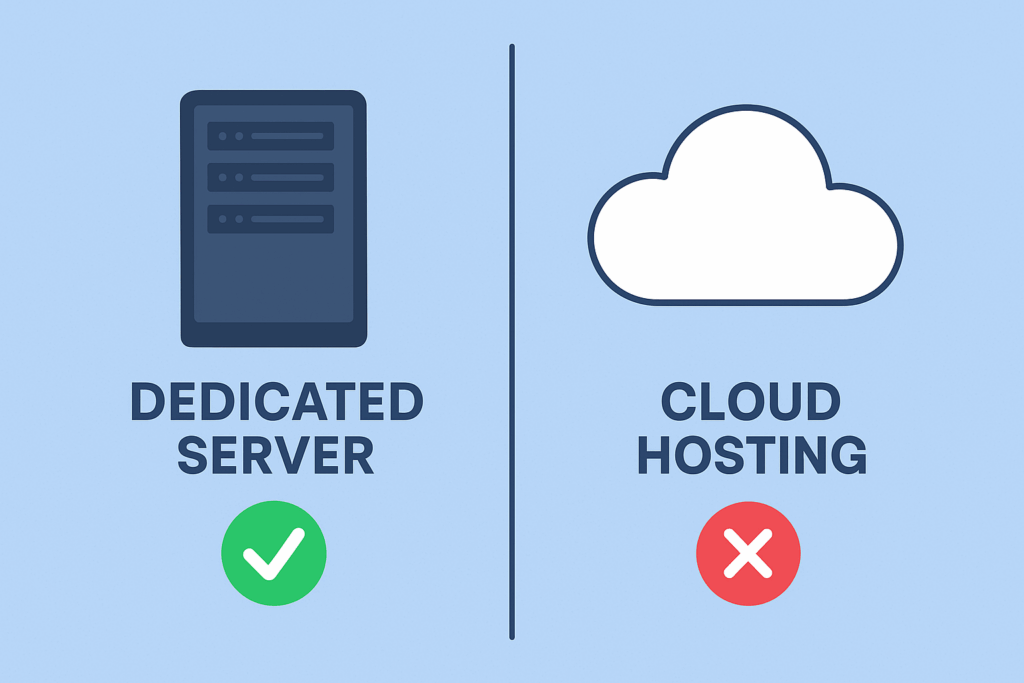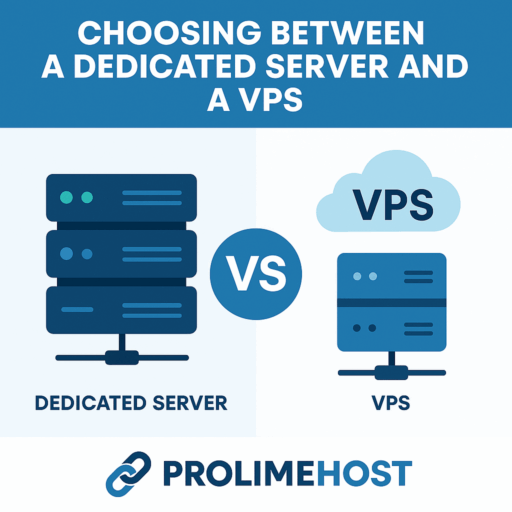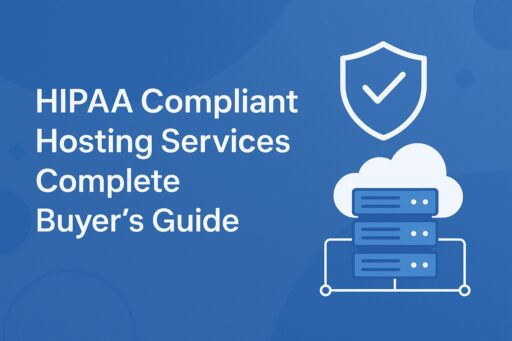
Hosting isn’t what it used to be, and it keeps evolving. A decade ago, Dedicated Servers ruled the conversation for firms that craved performance and control. Soon, the cloud and VPS alternatives swept in. They packaged scalability, minimal upfront capital, and flexibility in attractive dashboards, and the market adopted them almost overnight.
However, the complexities of modern workloads have changed the dynamics. Unexpected cloud bills disrupt budgets, spikes in shared pools lead to latency, and as data regulations tighten, shared and cloud hosts frequently stumble in compliance and security. That tension has prompted a fresh reassessment.
In 2025, the shift is pretty much visible. More firms are reallocating workloads back to physically dedicated servers. They seek stability in expenditure, predictability in latency, and the ownership rights that let security and compliance teams sleep at night. They require hosting architectures that can accommodate enterprise resource planning and sensitive data protection, all without a financial or security shrug.
Dedicated servers check each of those boxes. In the current marketplace, they are reclaiming their crown as the safest, most consistent, and often the most financially prudent option for organizations that cannot afford to take risks.
Key Takeaways
- Unlike cloud-based services, where resources are shared, a dedicated server allows full control over the operating system. You don’t need to share it with others; your company enjoys faster speeds and more stability.
- With a Dedicated Server, your information is fully protected in a personal space. You are allowed to set your own security protocols, ensuring your files stay safe from any potential threats.
- No worrying about the surprise cloud billing anymore! With dedicated hosting, you pay a fixed monthly price, which makes it much easier to stick to your budget and plan for the future.
- To gain the full advantage of dedicated hosting, it’s better to choose a trusted provider like ProlimeHost. Their professionals make sure you get the best possible service.
The Problem With Cloud and Shared Hosting
A few years ago, cloud hosting appeared to be the ultimate flexible choice. The idea of paying only for the resources attracted a lot of potential customers. Unfortunately, the offer is often misleading. Fees for I/O, snapshots, outbound data, and other seemingly optional features can add up to a devastating monthly bill.
Shared hosting, crowned the budget king decades ago, is still king, but the crown is heavy. Resources, of course, are shared, so the overconsumption of one user can become the failure of many.
Moreover, regulatory laws now impose stricter limits on how and where companies can put sensitive data. When information is processed in cloud or shared settings, the business may lose clear sight of where its data ultimately rests, leaving compliance obligations in doubt.
This is a major problem, especially in tightly regulated fields such as financial services, healthcare, and e-commerce. Without the ability to trace data to a specific physical site, answering inquiries from auditors or risk managers becomes a major headache.
Given the persistent uncertainty, executives are questioning whether traditional cloud and low-cost shared services can deliver sufficient protection any longer. What used to seem a smart choice with flexibility and low price now feels too fragile, leaving the organization open to many risks.
Why Dedicated Hosting Is Making a Strong Comeback
In 2025, dedicated hosting is once again getting all the spotlight. Companies want hosting that is fast, private, and entirely theirs, not another quick solution. Dedicated servers deliver exactly that; with resources locked to a single dedicated system, companies get steady performance, clear costs, and the freedom to configure hardware and software to exact specifications.
As workloads expand, firms cannot risk low uptime, sketchy security, or bargains that cost over time. Dedicated hosting turns that risk management upside down, bringing a predictable environment, full data sovereignty, and the freedom to customize according to their requirements.
The migration back to dedicated infrastructure is not just a trend anymore; it is a strategic investment for a scalable business.
Superior Performance and Reliability
When performance drives the business, the risks that come with shared resources are not acceptable. Cheap Dedicated Server delivers the same outcome: unshared, unequivocal access to all server resources, so that the site and application never slows down, especially during traffic spikes.
With shared or cloud systems, the performance and reliability depend on the other users as well. But when it comes to dedicated hosting, you will get stable resources so you never have to face a dull day during busy hours.
Enterprise-Level Security
In 2025, the cyber battlefield has evolved. Industries like finance, healthcare, and e-commerce can no longer rely on risky security measures. Dedicated servers offer the isolation necessary to contain sensitive workloads.
Unlike multi-tenant models, these resources operate on a single-tenancy system, providing a secure environment to host data-sensitive websites. Moreover, firms leverage full administrative rights to deploy stacked defenses such as next-generation firewalls, inline intrusion detection, real-time DDoS mitigation, and layered, in-motion and at-rest encryption protocols.
This type of freedom is denied in the shared and cloud infrastructure, where security has become an outdated idea.
Cost Transparency and Predictability
“Pay for what you use” was a great marketing move by cloud companies, yet no one talked about the hidden charges on bandwidth, storage, and optional management features. For businesses that work under a budget, this fluctuation in bills every month was never an ideal situation.
Dedicated hosting gives a fixed monthly or yearly cost. With a figure in mind, companies can make financial decisions with peace. This consistency ultimately leads to higher ROI and a stable future for the firm.
Total Control and Customization
Organizations that rely on advanced workloads demand an unmatched level of flexibility in configuration. Dedicated servers offer the level of command necessary, allowing enterprises to dictate every detail from hardware specifications to the choice of operating systems and software stacks.
All the factors that restrain resources, such as artificial intelligence, machine learning, extensive data analytics, SaaS product delivery, and high-volume e-commerce, can benefit greatly from such sovereignty. With full root access, IT teams can finetune performance and enforce security protocols tailored to their guidelines, something a cloud or shared hosting model cannot accommodate.
Compliance and Data Sovereignty
Recent years have tightened the data privacy landscape, with GDPR (General Data Protection Regulation), HIPAA, and PCI-DSS imposing stringent accountability on businesses regarding the handling of customer information.
Cloud and shared hosting architectures, by their nature, do not have clear control of physical data locations, so companies operating in regulated sectors have to face unknown risks. Dedicated servers, by contrast, erase this ambiguity, permitting organizations to stipulate the geography of their hardware and align with both local and international regulations.
So why settle for anything less?
Ready to take the next step? Buy dedicated server hosting with ProlimeHost and experience the difference a reliable provider can make for your business.
Which Businesses Should Consider Dedicated Hosting in 2025?
Every business needs its own server, but for some sectors it is a necessity. The industries that thrive on confidentiality, speed, and enterprise-level compliance should consider dedicated hosting as a perfect choice.
1 – E-Commerce Stores With Heavy Traffic
E-commerce stores are now virtual, but they are vulnerable. When traffic spikes, the speed of your site can make or break your business reputation. A dedicated server is like a cash register that can multiply on command, according to your site’s demands, without any downtime.
Beyond performance, these servers carry armored shields that encrypt every stripe of a credit card, turning a routine sale into a trusted transaction. Retailers are discovering that a single, confident transaction today can secure a loyal competitor-free subscriber tomorrow.
2 – SaaS Providers Handling Customer Data
SaaS players who manage sensitive user data greatly benefit when they choose dedicated hosting. With customers relying on their services round the clock, these providers crave predictable performance fortified by rock-solid security. By isolating their infrastructure on dedicated servers, they can lock down user data, customize server settings for 99.99% uptime, and cultivate an ecosystem that partners view as a safe home for their production environments.
3 – Healthcare and Finance Industries Needing Compliance
Few sectors encounter as stringent compliance demands as healthcare and finance. HIPAA, PCI-DSS, and GDPR set controls on how patient and payment information must be secured. Dedicated servers empower firms to dictate exactly how, when, and where data is stored, simplifying audits and oversight.
By segregating computing infrastructure, organizations contain risk to a single, private environment and lowering the probability of costly breaches and regulatory fines.
4 – AI, Machine Learning, and Big Data Workloads
AI, machine learning, and large-scale analytics workloads require concentrated and sustained computing power. Public or multi-tenant cloud platforms can only deliver the necessary consistency by raising cost and potentially introducing variance in performance.
Dedicated environments enable firms to architect and provision specialized, high-performance stacks, according to specific algorithmic workloads. The result is predictable, low-latency throughput that minimizes cycle time, optimizes efficiency, and accelerates model iteration, allowing organizations to work with vast data stores or to train next-generation AI pipelines with confidence.
Dedicated Hosting vs. Cloud Hosting in 2025

Over the last decade, cloud hosting has been pitched as the only option for firms strapped to budgets or ambitions of any scale. To be fair, it does deliver some degree of flexibility, but 2025 has exposed the loopholes of cloud services for growing firms. Dedicated hosting, once labeled dusty and old, has gradually revealed itself as the stable and reliable choice for anyone looking for uninterrupted performance, cost, and security.
Performance
Cloud platforms distribute storage resources across pools that serve multiple customers in a shared environment. Resource contention is handled in real time, which sounds efficient in theory, yet the reality is that a sudden spike in demand anywhere on the platform can affect every user.
For firms that rely on latency-sensitive applications, popular marketing campaigns, or complex processing workloads, the result is frequently a slowdown that a thousand alerts cannot fix.
Inside a dedicated environment, every core, every I/O channel, and every byte of memory is dedicated to a single organization. No noisy neighbors, no sudden policy changes. Stability is guaranteed, even in the middle of peak season.
Cost
Cloud hosting presents itself as the budget-friendly option, luring teams with the promise of “pay as you go” pricing. The truth is, expenses can add up almost overnight. Transfers of data across regions, snapshots of storage, frequent API interactions, and a dozen other services piled up, and the final invoice becomes a headache.
Dedicated hosting, in contrast, comes with a fixed package, either a monthly or annual lump sum. By eliminating the unpredictable swings, organizations can forecast cash flows with confidence and turn fiscal foresight into a competitive advantage.
Control
Cloud service providers don’t hand you the blueprint. Instead, they lay down the boundaries, deciding what servers, stacks, and security measures you’ll use. That leaves many firms squeezing their workloads, forever compromising speed and efficiency.
With dedicated hosting, the blueprint is yours. You decide what works best for your company. Whether you want to train an AI model overnight or support a Black Friday rush, your servers can be fine-tuned with that single purpose in mind, resulting in true peak performance.
Security
In 2025, safeguarding data is every business’s top agenda. Cloud environments, despite their advantages, expose data in shared multi-tenant settings, amplifying the risk of breaches and complicated compliance audits. Because storage locations are obscured by layers of virtualization, organizations struggle to ensure that every copy of sensitive information meets regulatory standards.
By contrast, dedicated hosting delivers the certainty of isolated hardware that companies can completely lock down, track, and audit in real time. This level of control simplifies adherence to statutes like GDPR, HIPAA, and PCI-DSS and instills the confidence that proprietary and financial data remain within prescribed boundaries.
A Future-Proof Foundation
During this growing period, the hidden limitations of the cloud can shift from anecdotal risk to strategic drag. Fluctuating performance, unexpected spikes in recurring expenses, and unclear accountability for sensitive workloads can collectively hinder the pace of workload.
Dedicated infrastructure, in contrast, serves as a scalable and customizable solution that organizations can fine-tune for performance, tighten for protection, and expand on a predictable growth curve. Once seen by some as a dated approach, dedicated hosting has evolved into the ultimate solution for enterprises that wish to excel in 2025.
Future of Hosting: Dedicated as the Backbone
The hosting landscape is never static. Emerging technologies keep redrawing the blueprint for how companies architect and grow their IT environments. While public and private clouds can be a quick fix, daily workflows still rest on bare-metal machines. Dedicated hosting gives the performance and reliability every enterprise is looking in this growing time period.
Looking ahead, dedicated hosting isn’t merely coping within a cloud-first landscape; it’s gaining momentum. As enterprises ramp up AI and comply with tighter regulations, the need for reliable, tailored infrastructure keeps rising. Here, dedicated servers emerge as the tested, resilient foundation that today’s businesses trust for tomorrow’s challenges.
Conclusion
For the past decade, cloud solutions impressed everyone with promises of scalability, flexible storage, and global reach. Yet the soaring bills driven by unpredictable storage and balance sheets of compliance fines have driven enterprises to rethink. Ultimately, dedicated servers have reclaimed the throne. Their reliable performance and secure infrastructure have become a new necessity.
For the best experience, it’s essential to partner with a reliable provider like ProlimeHost, which offers excellent customer support, high-quality hardware, and expertise in dedicated hosting solutions.
FAQ
Q1. Why are businesses moving back to dedicated servers in 2025?
Companies are shifting back to dedicated servers because they provide better performance, tighter security, predictable operating costs, and complete administrative control.
Q2. Are dedicated servers more expensive than cloud hosting?
Dedicated servers appear pricier, yet they are often the most economical option over time. Cloud expenses can skyrocket with unexpected fees such as premium storage charges. Dedicated servers deliver a single, straightforward monthly or annual fee, making expenses easy to forecast.
Q3. Who should consider dedicated hosting?
E-commerce sites, SaaS companies, financial and healthcare operations subject to strict compliance, or any organization using artificial intelligence, machine learning, or extensive datasets requiring sustained power and bandwidth, require dedicated hosting.
Q4. How does dedicated hosting improve security?
Dedicated servers maintain a single-tenant architecture, so no neighboring applications can compromise the environment. Firewalls, intrusion detection, and encryption can all be customized to the organization’s risk profile, providing a more robust security posture than multi-tenant cloud offerings.
Q5. Will dedicated hosting replace cloud hosting completely?
Not entirely. Certain businesses still benefit from cloud services. However, for organizations that prioritize predictable performance, reliability, and dedicated resources, dedicated hosting is a perfect choice.



